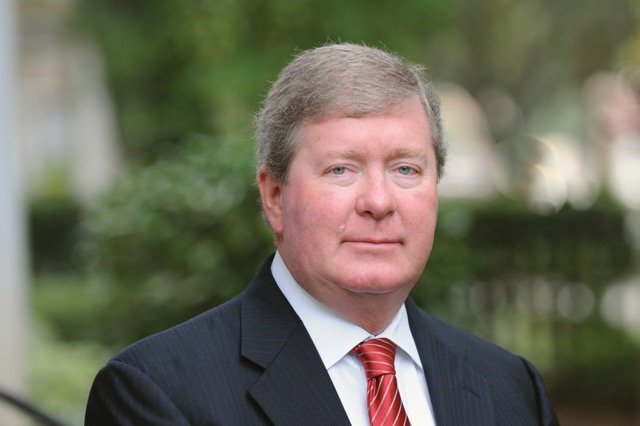Just two years ago, Charleston School of Law was on the brink of failing.
Enrollment numbers were dwindling. Its financial health was in peril. Graduate’s debt to income ratios were high. Above all, the school was beleaguered by a controversial pending sale to a private company.
But the for-profit law school has rebounded and improved at an unexpected rate.
By making a series of tough choices under the leadership of President Ed Bell, the law school has improved its financial standing and attracted more students to its urban campus in downtown Charleston.
“The school is turning around quicker than I ever could have imagined,” Bell said. “This has really been a perfect storm for everything to go right.”
Most recently, Charleston Law was able to improve its Financial Responsibility Composite score, a yardstick used by the federal government for measuring a school’s financial health, from 0.6 to 2.6 in just two years.
The composite score reflects the overall financial health of a law school on a scale from negative 1.0 to positive 3.0. Schools with a score greater than 1.5 are considered financially responsible. Schools with less than 1.0 are not considered financially responsible and are in danger of losing access to federal financial aid funds under the Title IV program.
The composite score is just one factor the Department of Education considers when determining a school’s is financial responsibility. The DOE also looks at whether schools are meeting all of their financial and debt obligations, as well as the size of cash reserves. To that end, Charleston Law has paid off a $6 million debt while avoiding a spike in annual tuition.
Charleston Law is improving in other areas, too. In the years since the law school withdrew from a pending sale to the for-profit law school consortium InfiLaw, first year enrollment has risen from 84 incoming students in 2015 to an estimated 220 in 2017. The school is also appealing its failing grade under the DOE’s gainful employment test, which measures graduates’ debt to income ratios.
“When the school was having such bad problems, there was such a feeling of potential loss,” Bell said. “The city of Charleston had wrapped its arms around it. Hundreds of people called wanting to help.”
Bell, who is new to academia, said he and the law school’s faculty are doing everything to safeguard Charleston Law from potential pitfalls. Bell frequently sits in on lectures and has become a student of higher education. In addition, the law school was also able to hire back professors who had been laid off in previous years — a move that will prove critical to Charleston Law’s success, Bell said.
Charleston Law is in the midst of transitioning from a for-profit institution to a nonprofit organization. The move will allow the law school to increase its scholarship offerings and cut student debt in half within five years, Bell said. The law school is also searching for a new campus in downtown Charleston. Obtaining non-profit status would facilitate this process as well.
“We need non-profit status to make the school truly work,” Bell said. “The idea of taking a profit or putting money back into the school is a real conflict, and we need to take that conflict out of the equation.”
Bell said it will take time to make the transition.

